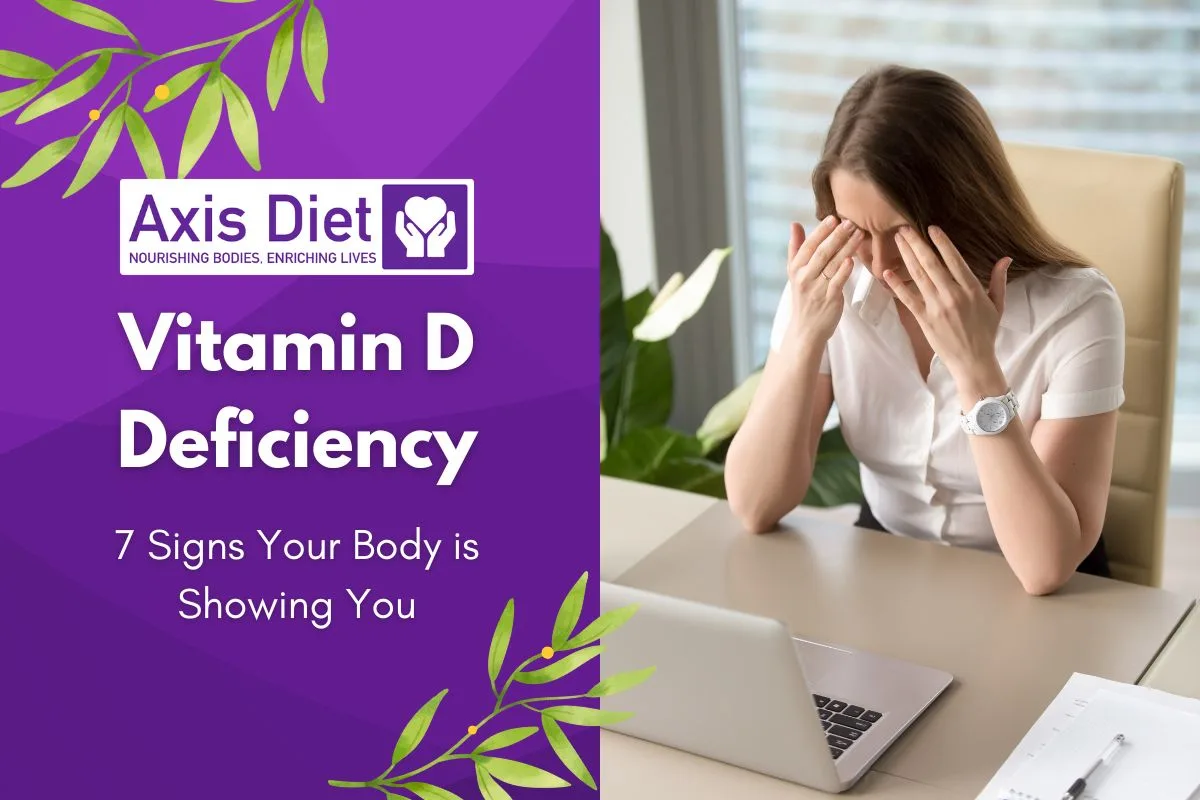
7 Signs Your Body Needs More Vitamin D
In the winter months, when sunlight is scarce, Vitamin D deficiency becomes a common health concern. This essential vitamin, largely sourced from the sun, is integral to our well-being. Its deficiency can lead to a range of symptoms affecting mood, energy, and physical health. This article highlights the key warning signs of Vitamin D deficiency, particularly in winter, to help you stay vigilant and informed.
Key Warning Signs of Vitamin D Deficiency
1. Fatigue and Low Energy
A hallmark sign of Vitamin D deficiency is an overwhelming sense of fatigue that transcends normal tiredness. Individuals may experience a level of exhaustion that doesn’t dissipate even with adequate rest or sleep. This fatigue is more profound and persistent, often impacting daily activities and quality of life. It’s not just about feeling sleepy; it’s a kind of lethargy that feels almost insurmountable.
2. Mood Swings and Depressive Symptoms
Vitamin D’s influence on mood and mental health is significant. Deficiency in this vitamin can lead to dramatic mood fluctuations, ranging from feelings of sadness to irritability. More seriously, it can contribute to depressive symptoms, particularly in the winter months when natural sunlight is scarce. The lack of Vitamin D disrupts the balance of neurotransmitters in the brain, which can affect emotional well-being.
3. Muscle Weakness and Pain
Often subtle and easily overlooked, muscle weakness, aches, or cramps can be a direct consequence of inadequate Vitamin D levels. Initially, this might manifest as a general feeling of weakness or a slight discomfort in the muscles. However, if left unchecked, it can progress to more pronounced muscle pain and even impact mobility.
4. Increased Susceptibility to Infections
Vitamin D plays a critical role in the functioning of the immune system. A deficiency can weaken the immune response, making one more prone to infections, particularly respiratory ones. This can be particularly evident in individuals who find themselves falling ill more frequently or struggling with longer-than-usual recovery times.
5. Bone Discomfort and Fragility
Vitamin D is essential for bone health, as it aids in the absorption of calcium. A lack of this vitamin can lead to discomfort in the bones, a feeling of tenderness, or even chronic pain. Over time, this can escalate to more serious conditions like osteoporosis or an increased likelihood of fractures due to weakened bone structure.
6. Delayed Healing
Slow healing of wounds or injuries can also be a subtle indicator of Vitamin D deficiency. This vitamin is involved in skin repair and regeneration processes. A lack in Vitamin D can result in a slower healing process, whether it’s cuts, bruises, or other injuries.
7. Excessive Hair Loss
While often attributed to other factors like stress or genetics, excessive hair loss can also be a sign of low Vitamin D levels. Vitamin D plays a role in the cycle of hair growth and health. Deficiency can lead to hair thinning or increased hair fall, affecting the overall health and density of hair.
Learn More: How to Maintain Optimal Vitamin D Levels
Recognizing these warning signs is just the first step. To learn more about how to maintain optimal Vitamin D levels during the winter, especially through diet, supplements, and lifestyle adjustments, read our comprehensive guide at 10 Proven Ways to Get Vitamin D During Winters. This resource provides practical and effective strategies to help you combat Vitamin D deficiency.
Conclusion
Being aware of the signs of Vitamin D deficiency is crucial, especially in winter. Stay informed about your health and take proactive steps to ensure you’re getting enough of this vital nutrient. For more health insights and advice, explore our related articles. Remember, for personalized health guidance, it’s always best to consult with a healthcare professional.
Axis Diet is dedicated to empowering individuals with knowledge and practical advice for healthier living. Our articles, grounded in research and expert insights, aim to simplify complex nutritional concepts, offering a comprehensive understanding of various aspects of diet and wellness. While these articles are informative and a great starting point for anyone looking to improve their health, they are for informational purposes only.
For personalized, professional guidance tailored to your unique health needs, we encourage you to consult with Axis Diet’s registered dietitians. Reach out to us at https://www.axisdiet.com/contact/ for expert personalized guidance on your nutritional journey.



Comments are closed.